‘WeWash’ is taking strides to combat the immediate water and sanitation issues faced by households in rural communities in Bulgaria. Part of the ‘Women, Water & Leadership’ Appeal 2017-2019, WeWash, works together with members of the community, the Earth Forever Foundation and SI Club Plovdiv, to design solutions to empower unemployed and retired women facing multiple barriers in accessing safe water and sanitation. Three villages in the Stara Zagora Municipality were identified for the implementation of the project.
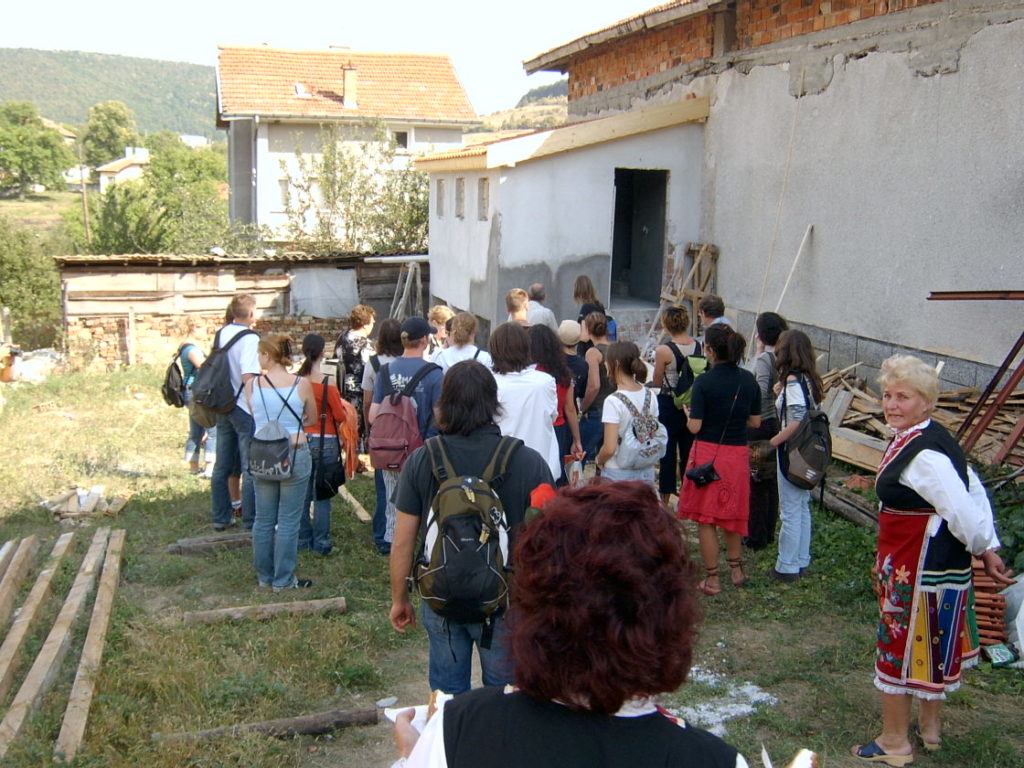
Presenting construction project to youth visitors
The initial phase is now completed – the programme focusing on increasing awareness within communities on the main issues surrounding safe and unsafe water and sanitation; waste-water treatment; and, food, health and hygiene. Communities are empowered with knowledge of relevant regulations and understand how these directly impact their lives. Eight events took place in the three villages each covering alternative sanitation solutions. A further seven events covered the subject of the safe reuse of water, and over 350 participants attended each of the categories.
With the inclusion and participation of various stakeholders and institutions, many of the local challenges and issues faced by communities were raised and discussed within the meetings – including concerns over the quality and lack of access to clean drinking water; solutions for safe sanitation; and the management and prevention of storm water, floods, and waste. A Youth Festival was held and a village event organised to recognise Hand Washing Day, addressing the Roma community, with the largest number of children in Stara Zagora Municipality, and attended by the President of SI Bulgaria, Ms. Yonka Marinova and members of SI Club Plovdiv. The ‘Empowerment of women’ was another significant and thought-provoking success. A Photographic Exhibition, this event showcased portrait photographs of the community, many of whom are involved in the project, and was presented in the Regional library in Stara Zagora.
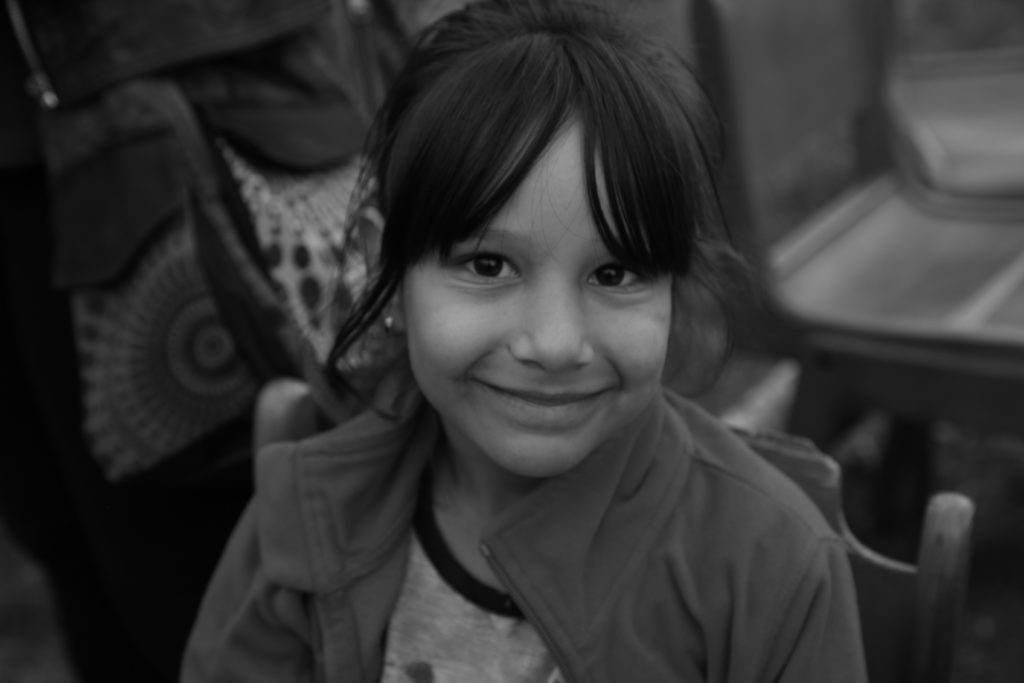
A Portrait from the Photo Exhibition held to raise awareness of the water and safety challenges faced by communities
Through a programme of skills training, leadership and coaching, WeWash empowered women with the tools to approach alternative sanitation planning; construction and management; and the reuse of treated water and biological waste for natural agriculture. All programmes delivered new skills and the capacity for women to lead, implement and monitor projects in their communities, developing skills to open doors to jobs and career opportunities, particularly those in technical areas: such as water supply, sanitation, drainage and irrigation, often male dominated roles, particularly in patriarchal village communities.
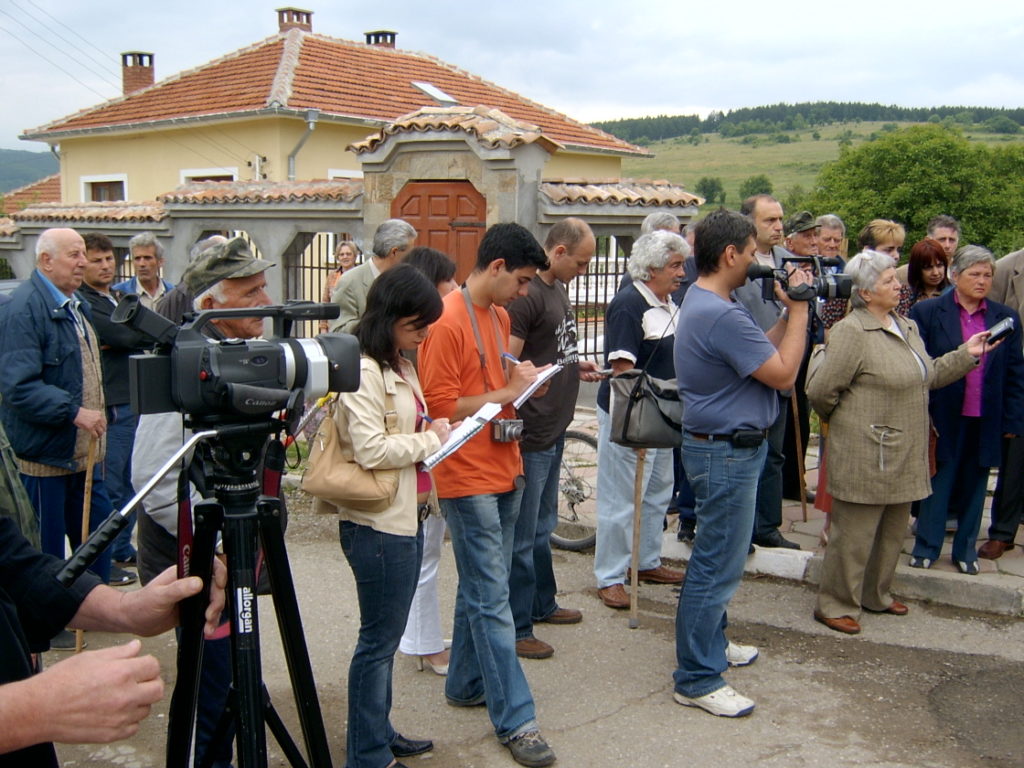
A meeting with journalists to raise awareness of the sanitation and water challenges faced by the community and showcase solutions
Phase two of WeWash, was dedicated to learning by doing – and a vocational programme to deliver knowledge right to the heart of communities. Teaching the fundamentals of soil fertility including safety in handling, composting, and the safe reuse of biological and plastic waste, communities received education in storm water and flood management; safe drinking water and sanitation; and importantly, were taught how to build a model ecological sanitation system for a local children’s centre in the village of Kalitinovo. Technical skills were also learned, in order to renovate and maintain water and sanitation systems at household level, modernise decentralised toilets, and to build alternative wastewater systems – achieved in partnership with mayoralties of the villages.
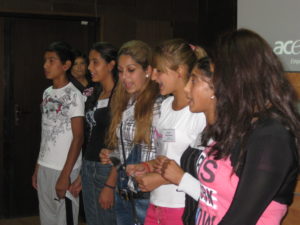
Presenting project results in City hall
Thanks to Soroptimists around the world and a donation of 5000 euro from SI Club Zottegem, Zuid-Oost-Vlaanderen, Belgium, Phase Three is now underway and WeWash is empowering 30 young women and girls as they strive for new careers in the water sector, supporting them in job applications and giving guidance on career pathways. A further attainment for the project will be the completion of the model ecological sanitation system at the children’s centre, and attention will continue to focus on promoting menstrual hygiene within schools and at public toilets.
Following the success of the awareness raising and training programme in Phase One and Two, eighteen rural women and girls will take on the role of community leaders in water and sanitation, and with intensive training in specific water and sanitation regulations and sustainable solutions, they will be empowered to express, justify and advocate on behalf of their communities. Through visits to various municipal and regional institutions, the women will be able to present concerns, push for solutions, and effectively communicate with decision-makers to protect the rights of their communities.

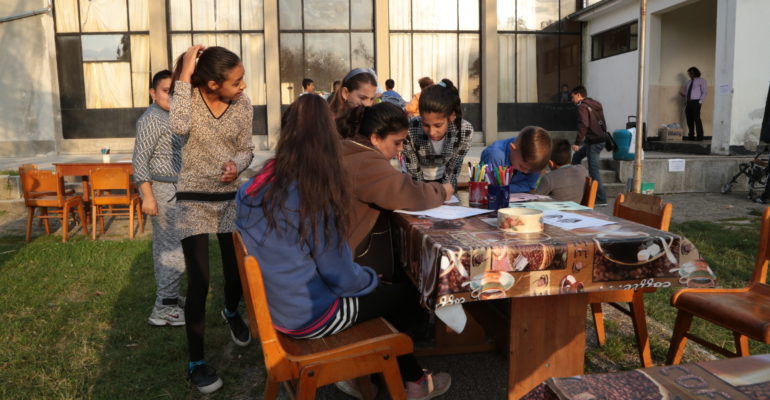
As a UK Soroptimist who has been involved in and has SI friends in Bulgaria I am so pleased that such an initiative is happening. I’m sure the effect will be long lasting.